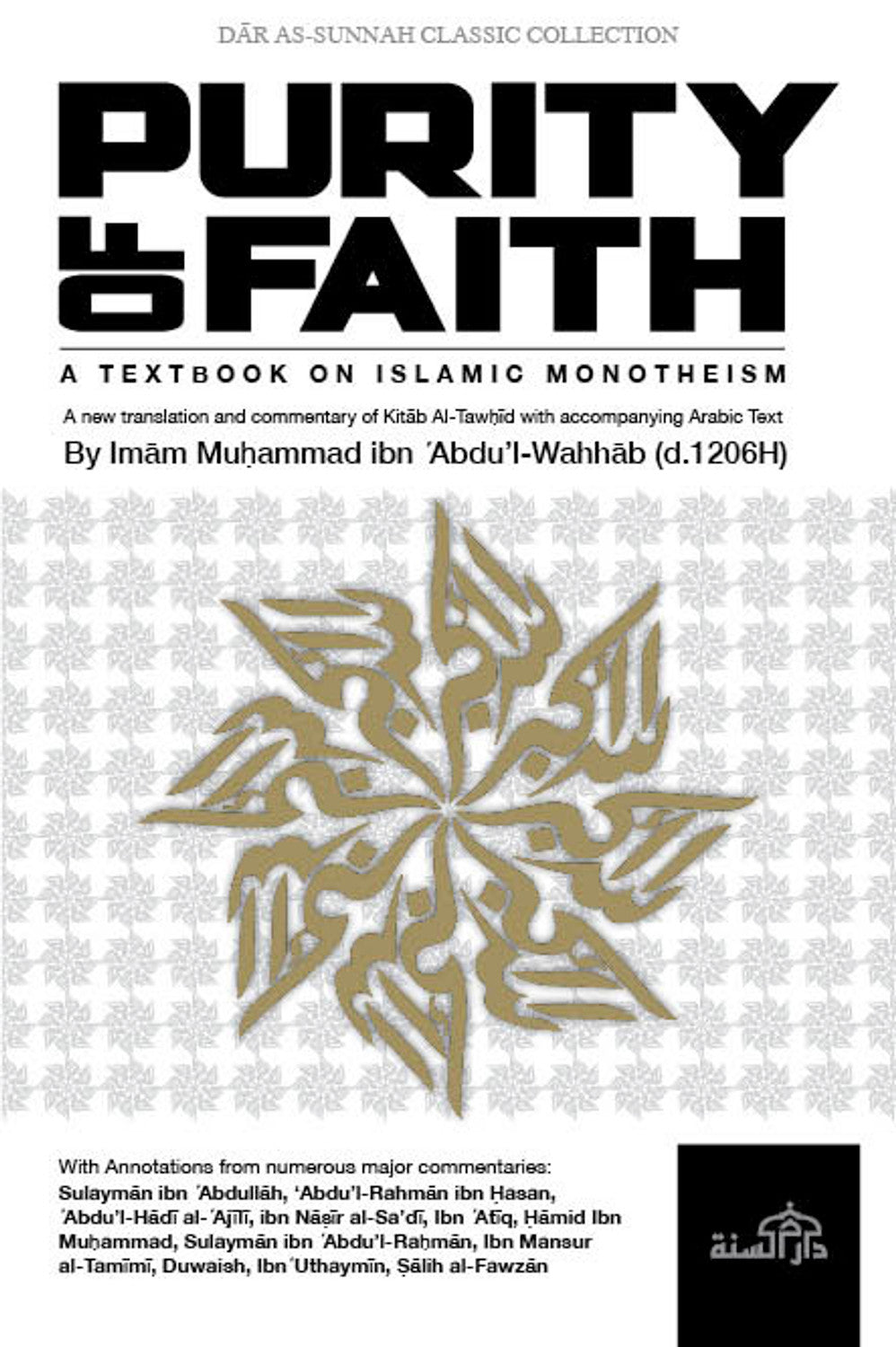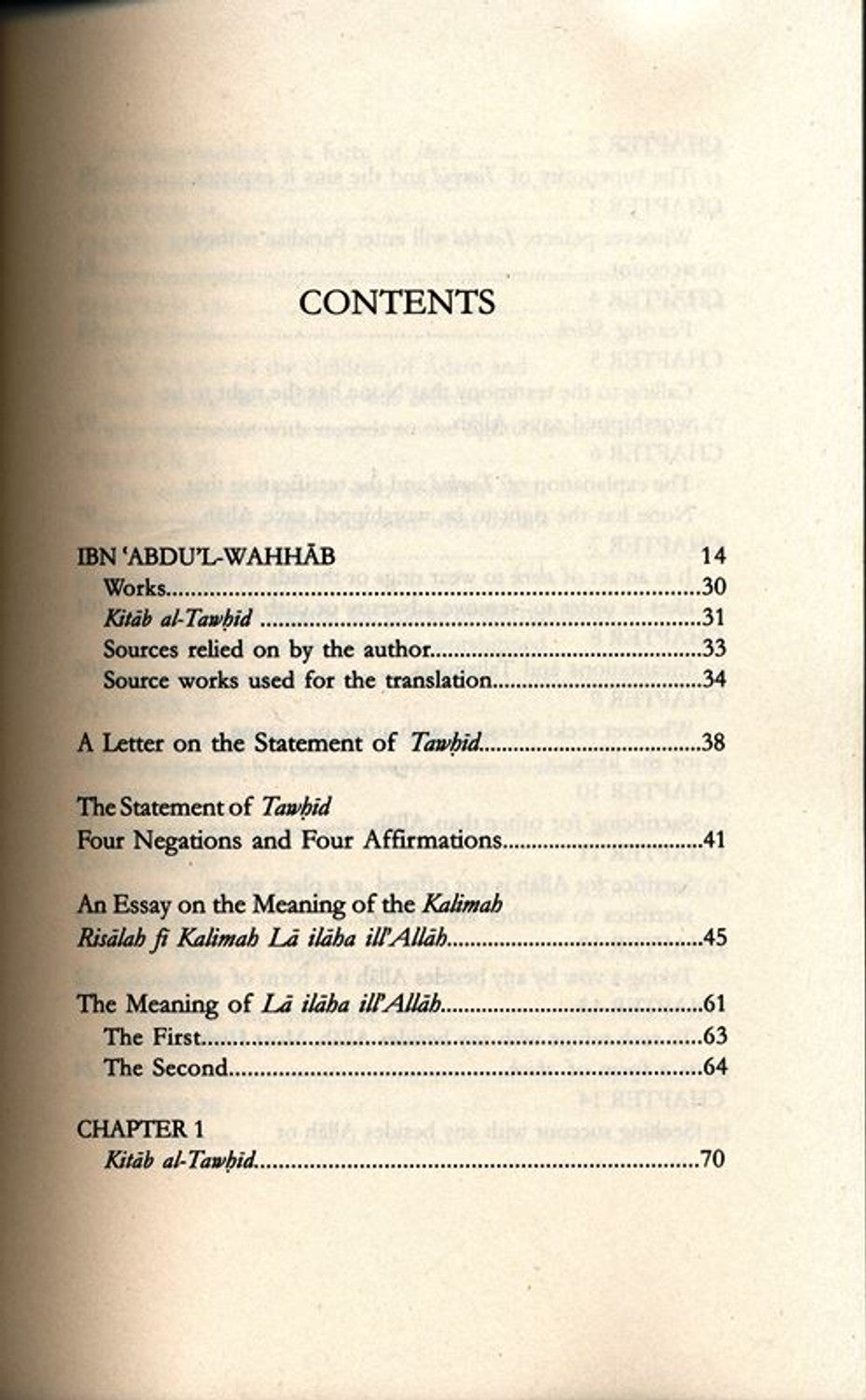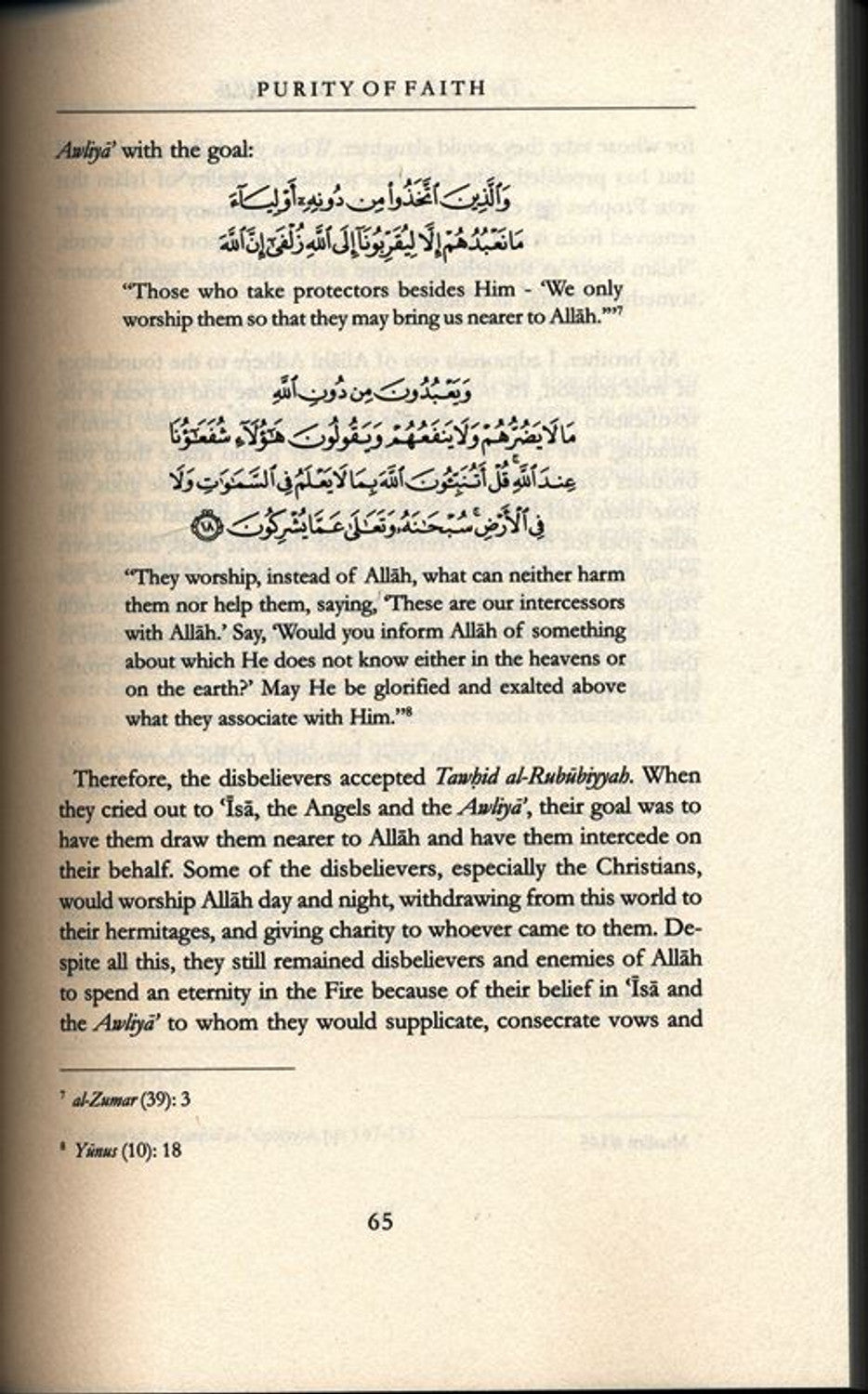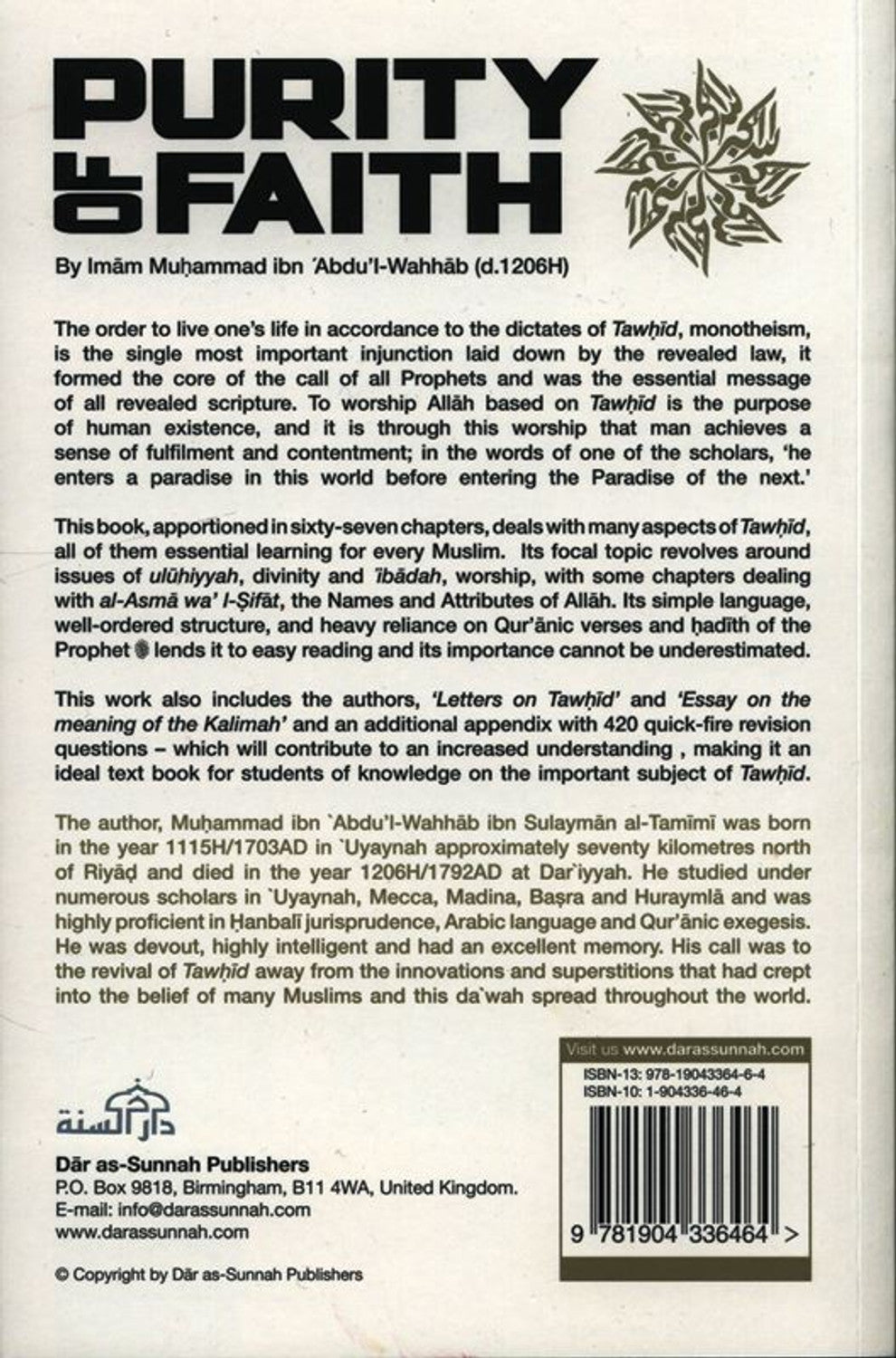Purity of Faith | Daar Us-Sunnah
Purity of Faith | Daar Us-Sunnah
Publisher:
Dar As Sunnah Publications
Author:
Imam MuHammad ibn `Abdu’l-Wahhab’s monumental
Language:
English
Binding:
Soft Cover
Pages: 480
Size: A5 |5.8 x 8.3 in| 14.8x 21 cm
Couldn't load pickup availability




Collapsible content
Description of Book
This is an informative and educational book that discusses the concept of Tawhid, or monotheism, which is crucial to the foundation of all revealed religions. The author, a renowned expert on Islamic theology, focuses on the importance of worshipping Allah according to Tawhid, which is the ultimate purpose of human existence. This work, divided into sixty-seven chapters, covers various aspects of Tawhid and its significance in a Muslim's life. It is written in clear and simple language, based on Qur'anic verses and Hadith, making it easily accessible to readers. With numerous commentaries and translations in over twenty languages, this landmark book continues to be relevant in today's world. Dar us-Sunnah is proud to present this accurate translation in modern English, with annotations from major commentaries, critical analysis of Hadiths and narrations, and bonus materials such as the author's letters and biography. It also includes revision questions and indexes for easy reference. A must-read for every
Publisher
Dar As Sunnah Publications
Author
- Imam MuHammad ibn `Abdu’l-Wahhab’s monumental
Sample Pages - Content
PURITY FAITH By Imam Muhammad ibn 'Abdu'l-Wahhab (d.1206H) The order to live one's life in accordance to the dictates of Tawhid, monotheism, is the single most important injunction laid down by the revealed law, it formed the core of the call of all Prophets and was the essential message of all revealed scripture. To worship Allah based on Tawhid is the purpose of human existence, and it is through this worship that man achieves a sense of fulfilment and contentment; in the words of one of the scholars, 'he enters a paradise in this world before entering the Paradise of the next.' This book, apportioned in sixty-seven chapters, deals with many aspects of Tawhid, all of them essential learning for every Muslim. Its focal topic revolves around issues of ulühiyyah, divinity and ibadah, worship, with some chapters dealing with al-Asma wa' l-Şifat, the Names and Attributes of Allah. Its simple language, well-ordered structure, and heavy reliance on Qur'anic verses and hadith of the Prophet lends it to easy reading and its importance cannot be underestimated. This work also includes the authors, 'Letters on Tawhid' and 'Essay on the meaning of the Kalimah' and an additional appendix with 420 quick-fire revision questions - which will contribute to an increased understanding, making it an ideal text book for students of knowledge on the important subject of Tawhid. The author, Muḥammad ibn 'Abdu'l-Wahhab ibn Sulayman al-Tamimi was born in the year 1115H/1703AD in Uyaynah approximately seventy kilometres north of Riyad and died in the year 1206H/1792AD at Dar'iyyah. He studied under numerous scholars in 'Uyaynah, Mecca, Madina, Başra and Huraymla and was highly proficient in Hanbali jurisprudence, Arabic language and Qur'anic exegesis. He was devout, highly intelligent and had an excellent memory. His call was to the revival of Tawhid away from the innovations and superstitions that had crept into the belief of many Muslims and this da'wah spread throughout the world. Visit us www.darassunnah.com ISBN-13: 978-19043364-6-4 ISBN-10: 1-904336-46-4 دار السنة Där as-Sunnah Publishers P.O. Box 9818, Birmingham, B11 4WA, United Kingdom. E-mail: info@darassunnah.com www.darassunnah.com Copyright by Där as-Sunnah Publishers 9 781904 336464">
Imam MuHammad ibn `Abdu’l-Wahhab’s monumental
Imam Muhammad ibn Abdul-Wahhab (1703–1792) was a prominent Islamic reformer and theologian from Najd, Arabia, best known for his emphasis on returning to the fundamentals of Islam, advocating for monotheism (Tawhid), and eliminating practices he considered innovations (bid’ah) in the religion. His most influential work, Kitab al-Tawhid (The Book of Monotheism), is a concise yet impactful text on the importance of worshiping Allah alone, free from any forms of association (shirk). His teachings sparked the Wahhabi movement, which sought to revive Islamic practices based on the Quran and Sunnah, influencing religious thought and reform efforts in the Muslim world.




